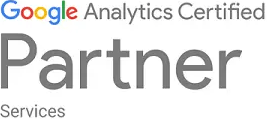In the ever-evolving realm of digital marketing, local SEO remains a pivotal element for businesses seeking online prominence. As we delve into the intricacies of local SEO, drawing from extensive research and industry observations, the goal is to offer a comprehensive guide for businesses to thrive in local search rankings.
Key Ranking Factors for Local SEO
Based on Moz’s insightful 2017 study, several key factors play a crucial role in local SEO:
- Proximity of Address to the Point of Search: Google often gives precedence to local businesses nearest to the searcher. While businesses cannot change their location, understanding this factor helps in strategizing other SEO efforts.
- Quality and Authority of Inbound Links: The importance of inbound links from trusted websites has been increasingly recognized. Such links indicate to Google that your business is reputable, necessitating efforts to gain links from domains with high authority.
- Google My Business Category Associations: Properly categorizing your business in Google My Business is crucial. Misclassification can lead to penalties, whereas accurate categorization helps in aligning with user searches.
- Locally Relevant Inbound Links: Securing inbound links from local domains can significantly enhance local SEO. This involves engaging in local community activities, content sharing, and collaborations.
Improving your local rankings
Listing Management: Optimizing for Local Visibility
In the digital era, the accuracy and consistency of your online listings are paramount. Listing management involves ensuring that your business’s information is uniform across all platforms, including Google My Business, Bing Places, Yelp, and industry-specific directories. This uniformity boosts SEO and aids potential customers in finding accurate and reliable information about your business.
- Regular Updates: Keep your listings up-to-date with current addresses, phone numbers, operating hours, and services.
- Managing Reviews: Actively manage customer reviews across platforms to build trust and improve your online reputation.
- Enhanced Information: Provide additional details like photos, directions, and descriptions to make your listings more informative and appealing.
Local Content: Engaging Your Community
Local content is a key driver in engaging and attracting a local audience. This involves creating content that is specifically tailored to the interests, needs, and cultural aspects of your local community.
- Community Events and News: Share insights or updates on local events, news, or issues, showing your business’s involvement and interest in the community.
- Local Keywords: Incorporate local keywords into your content strategy. Blog posts about local topics or guides relevant to your area can improve local search visibility.
- User-Generated Content: Encourage customers to share their experiences with your business. This could be through social media contests or featuring customer stories on your blog.
Local Citations: Building Your Business’s Online Authority
Local citations are mentions of your business’s name, address, and phone number (NAP) on other websites. These citations play a crucial role in local SEO by validating your business’s existence and location.
- Consistency is Key: Ensure that your NAP information is consistent across all citations. Inconsistencies can confuse search engines and potential customers.
- Quality Over Quantity: Focus on getting listed on reputable and relevant directories. Quality citations from authoritative local or industry-specific sites are more valuable than numerous low-quality listings.
- Active Management: Regularly check and update your citations. Tools like Moz Local or BrightLocal can help track and manage your citations efficiently.
Incorporating these strategies into your local SEO efforts can significantly enhance your online presence and connect you more effectively with your local community. By managing your listings, creating local content, and building strong local citations, you’re not just improving your search engine rankings; you’re also establishing a robust digital footprint in your local market.
Common Local SEO Mistakes by Small Businesses
Awareness of common pitfalls is as vital as understanding ranking factors:
- Neglecting Local Traffic: Many businesses overlook the immense potential of local SEO. Strategies like verifying Google My Business listings, maintaining consistent contact information, embedding Google Maps on websites, and optimizing for local keywords are essential.
- Responsive Website Design: The lack of a mobile-friendly website can critically hamper a business’s online presence. Mobile optimization is not just a trend but a necessity, given the increasing reliance on smartphones for internet access.
- Underutilizing Customer Reviews: Customer reviews significantly influence consumer behavior. Actively encouraging and highlighting reviews can bolster trust and contribute to SEO through fresh, relevant content.
- Integration of Online, Offline, and Mobile Marketing: Many small businesses struggle to effectively combine these aspects, which is crucial for a comprehensive understanding of marketing ROI and strategy effectiveness.
- Inadequate Customer Engagement: Understanding and engaging with the audience is fundamental for tailoring marketing strategies and building meaningful relationships.
Industries That Reap High Rewards from Local SEO
Certain sectors gain substantial benefits from well-executed local SEO strategies:
- Professional Services: Businesses like accountants, financial planners, and IT consultants rely heavily on local SEO to connect with potential clients in their vicinity.
- Trades and Home Services: Local SEO is indispensable for services like home repair and renovations. Being visible in local searches directly translates to more business leads.
- Medical Practices: For medical professionals, local SEO ensures they are found by individuals seeking healthcare services in their area.
- Real Estate: In real estate, optimizing for specific locations, including cities and neighborhoods, is key to attracting prospective buyers or renters.
- Restaurants and Multi-Location Businesses: These businesses benefit from local SEO by attracting customers to specific locations, promoting deals, and enhancing their online visibility.
- Pet Services: Businesses offering pet-related services need to capitalize on local SEO to reach pet owners searching for services in their locality.
In conclusion, local SEO is a multifaceted and dynamic aspect of digital marketing, requiring a deep understanding of various factors and strategies. As we navigate through 2023, businesses that adeptly implement and refine their local SEO practices will undoubtedly gain a competitive edge in the digital landscape. For further expertise and guidance in enhancing your local SEO, Digital Eagles stand ready to assist, offering tailored solutions to meet your unique business needs.



















